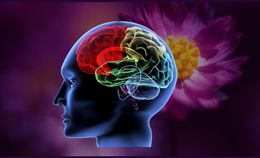According to the National Institute of Mental Health, major depression is a common mental disorder in the United States. It can become so severe that it impairs an individual's ability to carry out major life activities.
If you live with depression, know that you are not alone; roughly 17.3 million adults in the United States exhibited at least one major depressive episode in 2017. Depression was also reported to be more common among females (8.7%) compared to males (5.3%).
Do not let these numbers get you down- there is hope! Chiropractic care and adjustments can be very beneficial for treating the symptoms of depression. So, let's find out how.
What Are the Symptoms of Depression?
Depression is a state of low-mood that comes with the feeling of irritability, hopelessness, anxiousness, and apathy. Depressed people often avoid social activities and interactions that they once enjoyed. They may also experience the following:
- Digestive disorders
- Fatigue
- Excessive sleepiness or insomnia
- Loss of appetite or overeat
- Musculoskeletal complaints such as back pain
- Headaches or migraines
- Muscle tension and stiffness
- Inability to relax
Like anxiety, depression comes in response to certain life events. Clinical Depression is a group of symptoms, the most common being low self-esteem. This level of depression is severe and recurrent.
People with Major Depressive Disorder can experience suicidal thoughts or attempt to commit suicide. If you find yourself in such a place, there are many hotlines that can help you through a time of crisis.
Depression ranges from mild to severe, and the symptoms vary from one person to the other. Many people suffering from a mental health disorder often become frustrated from the barrage of treatments and medications they go through, each time they visit a doctor.
Many conventional treatments for depression can trigger uncomfortable side effects. Some of these symptoms may refuse to fade away.
Fortunately, chiropractic care is a non-invasive, non-surgical procedure that has been proven to improve the symptoms of depression.
A chiropractor is a specialist you should consult when you suffer from depression; especially, if you can't trace the reason for your symptoms. The chiropractic doctor will conduct a thorough examination to detect places within your spine that could benefit from gentle hand manipulation. The adjustments to specific body parts will allow unrestricted flow of blood, which relaxes the muscles. The relief from stress can be an effective therapy for those with depression.
How Can Chiropractic Care Help Patients with Depression?
There are five ways chiropractic care can help with depression. Here is a list of those five ways:
1. It aims for a body-mind approach
Chiropractic care is about getting the right balance between your body and mind. A chiropractor will help bring balance by looking at all your health areas, such as, exercise, therapies, adjustments, diet, and supplements. Chiropractic care leaves no stone unturned. Even small changes, such as incorporating omega-3 into your diet may have an impact on your depression symptoms.
2. Lowers your blood pressure
Studies have shown the combination of massage therapy and chiropractic care can reduce blood pressure and relieve stress symptoms. High blood pressure is a common symptom of depression and stress.
The study found that 15 minutes after both chiropractic sessions and massage therapy, blood pressure in patients was reduced.
Another study reported positive results 15 minutes after a massage therapy. This evidence shows that chiropractic care can reduce stress and anxiety symptoms, helping patients with mental issues, such as depression, to feel stable.
3. It promotes an all-natural solution without side effects
Chiropractic care is an all-natural procedure. When patients see their doctors, they often complain about the side effects of depression medication. This includes fatigue, weight gain, nausea, and insomnia. Chiropractic care is a natural way to reduce anxiety symptoms, so you do not need to take medication and suffer from its side effects.
4. Adjusts your spine to trigger positive hormones
Your spinal health influences all regions of your body. A study, published in the Manipulative and Physiological Therapeutics Journal, reports that your body releases hormones, such as, cortisol, oxytocin, and neurotensin, after chiropractic care,. These hormones help stimulate optimal nervous system functioning, which includes:
Cortisol: Blocks pain from inflammation
Oxytocin: Boosts neuro-communication, which positively impacts feelings of social bonding
Neurotensin: Neutralizes stress-induced pain
As you can see, chiropractic care will have a positive effect on you when these hormones are released in your body.
5. Helps you sleep better
As mentioned earlier, insomnia is a symptom of depression and anxiety. With chiropractic care, you will sleep better. According to a study published in the Journal of Chiropractic Medicine, chiropractic adjustment helps improve patients sleep patterns.
Also, massage therapy has proven to have beneficial effects on patients sleep. Another study reports that breast cancer patients were significantly relieved from insomnia after a massage therapy session.
So, if you want to be free from insomnia and fatigue, you should get chiropractic care and/or massage therapy.
Relationship Between Chronic Pain and Depression
Depression and chronic pain go together. It is not only patients who are in pain that experience depression; however, depression increases as an individual's sensitivity to pain increases. This makes them feel worse than they should.
When you are happy and distracted, you can ignore pain. The problem is. this pain can quickly become unbearable and frustrating if you fall into a state of distress.
Let's consider fibromyalgia - a chronic pain disorder - which has been shown to be linked to, but not directly caused by, depression.
The symptoms associated with fibromyalgia can be reduced by treating depression. Likewise, depression symptoms can be reduced through a reduction in fibromyalgia pain. To successfully manage these symptoms, you need to be treated for both conditions.
How Chiropractic Care Can Reduce Chronic Pain and Depression
Chronic pain, and in particular spinal pain, can be eliminated through chiropractic care. A chiropractor will align your spinal column to eliminate pressure on specific areas of the body, ensuring nerve endings are not shifted or pinched.
When your spinal column is misaligned, your brain will receive pain signals. This pain may increase in intensity as time goes on. A shifted spinal column may also bring about pain, tingling, numbness, and a loss of mobility.
When your spinal discs shift, there is a significant amount of pressure on the nerves in your spine. If you want to avoid corrective surgery, your spine will need to be adjusted. Apart from manipulating the spinal column, a chiropractor will also advise you on stretches and exercises needed to take better care of your body. Once the pain subsides, your depression may wane.
How Many Sessions Are Often Recommended?
On average, treatment for depression may take five or six visits over two or three weeks; however, the number of recommended sessions will vary from one person to the other. This all depends on the severity of your problem, the length of time you have had the complaint, and your commitment to the rehabilitative exercises recommended by your chiropractor.
What will it Cost?
The average price per session in the country is $35-$250.The overall cost of your chiropractic treatment for depression will depend on the number of sessions that you go to and how frequently you go to an adjustment. For more information, read: How Much Does Chiropractic Therapy Cost?
References:
1 https://journals.sagepub.com/doi/10.2466/pms.1997.84.1.157
2 https://www.sciencedirect.com/science/article/abs/pii/S1556370710000647
3 https://www.ncbi.nlm.nih.gov/pubmed/21784145
4 https://www.ncbi.nlm.nih.gov/pmc/articles/PMC4020018/
5 https://www.ncbi.nlm.nih.gov/pmc/articles/PMC4201209/
6 https://www.ncbi.nlm.nih.gov/pubmed/24450367
7 https://www.nimh.nih.gov/health/publications/chronic-illness-mental-health/index.shtml





















